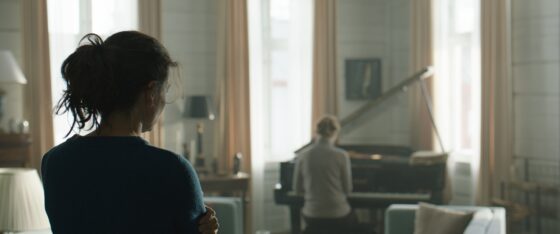Disappearance (Boudewijn Koole, Netherlands/Norway) — Contemporary World Cinema
By Ethan Vestby
Drawing easy comparisons to Ingmar Bergman’s Autumn Sonata with its piano motif, strained mother-daughter relationship, and general Scandinavian coldness, Boudewijn Koole’s Disappearance seems to exist solely to be the umpteenth case in an argument that, yes, a certain brand of ennui and alienation will always be in vogue on the festival circuit. This seems its sole reason for being; any other attempts at explanation draw blanks.
The set-up: a renowned photographer, Roos (Rifka Lodeizen), returns to her childhood home, forcing her to confront her distant, stone-faced mother Louise (Elsie de Brauw), who is still resentful of Roos’ choosing to live with her father when her parents divorced. For counterpoint, Disappearance also details Louise’s warm relationship with her Barron Trump-looking teen half-brother Bengt (Marcus Hanssen), in which she gets to act the role of the caring, jovial mother she never had, a strand of the film which at least strives to lighten the mood. Yet hanging over the film is Roos’ shocking secret, the revel of which is long delayed and not quite worth the wait.
Koole doesn’t help matters through his repeated and self-conscious attempts to “open up” the film: he desperately tries to hide the material’s chamber-drama nature by repeating landscape shots of the wintry, mountainous Norwegian countryside. Used so often and unimaginatively, these images only serve to demarcate the material’s limitations. As for Koole’s sense of dramaturgy, well, in the third act we literally get a moose fetus being removed from its dead mother’s body, played as straight-faced metaphor rather than attention-getting perversity. Though if anything, maybe the film needed more of that hilariously overwrought quality to actually hold the viewer’s attention.
Ethan Vestby


